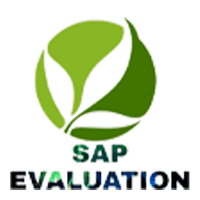During a (Substance Abuse Professional) SAP evaluation, a comprehensive assessment addresses issues related to an individual’s alcohol or drug use. This Evaluation is conducted in a face-to-face setting. Which is crucial because it allows the SAP to observe physical cues that play a vital role in the assessment process. These cues may encompass a range of indicators such as tremors, needle marks, dilated pupils, exaggerated movements, yellow or bloodshot eyes, lack of eye contact, variations in physical activity (either slow down or hyperactivity), appearance, posture, demeanor. The individual’s ability to communicate in person.
Throughout the face-to-face evaluation. The SAP’s primary objectives are to determine whether the individual has a substance abuse problem or addiction and to assess its severity. This is achieved by gathering an extensive array of information. The evaluation process typically involves standardized testing. The collection of data concerning the individual’s history of drug and alcohol use, their mental health history, family background, social and physical health, and random drug/alcohol testing. The history of drug and alcohol use will delve into aspects such as when it began. How long it has persisted, how frequently substances are used, the quantity consumed, the specific substance(s) used. The emotional and physical characteristics associated with it. This thorough evaluation enables the SAP to make informed recommendations for the individual’s treatment and recovery.
Several Steps Typically Involved During a Substance Abuse Professional (SAP) Evaluation
- Initial Assessment: The SAP conducts an initial assessment to gather information about the employee’s substance abuse history. Including any previous evaluations or treatment.
- Face-to-Face Evaluation: The SAP conducts a face-to-face assessment with the employee to further assess their substance abuse issues. This may involve interviews, questionnaires, and other assessment tools.
- Review of Documentation: The SAP reviews relevant documentation, such as drug test results, medical records, and any previous treatment reports.
- Treatment Recommendations: Based on the assessment and evaluation, the SAP recommends appropriate education and treatment programs the employee should undergo.
- Follow-up Monitoring: After the initial evaluation, the SAP may establish a follow-up plan to monitor the employee’s progress and compliance with recommended treatments.

What is a Substance Abuse Professional (SAP)?
A Substance Abuse Professional (SAP) is a certified professional who specializes in evaluating individuals’ substance abuse problems, particularly in the context of workplace regulations. SAPs have specific qualifications and training to conduct thorough assessments, make appropriate recommendations, and play a crucial role in helping individuals return to work safely and successfully.
What Do I Do Between SAP Evaluations?
Between SAP evaluations, employees need to follow the recommendations provided by the SAP, which typically include participation in education and treatment programs. It is crucial to comply with prescribed treatments and actively engage in recovery to address substance abuse issues effectively.
What Happens After a SAP Evaluation?
After a SAP evaluation, the employee must complete the recommended education and treatment program. Once they have completed the program, the employee can undergo a follow-up evaluation by the SAP. If the SAP determines that the employee has successfully resolved their substance abuse issues, they may be eligible to return to duty. The employee’s compliance with ongoing monitoring or aftercare requirements will also be considered.
How Can We Help an Employee Who Needs a SAP?
To help an employee needing an SAP evaluation. It is important to provide guidance and support throughout the process.
This includes:
- Informing the employee about the SAP evaluation requirement and explaining the importance of addressing substance abuse issues.
- Assisting the employee in finding a qualified SAP near their location.
- Encouraging the employee to fully engage in the evaluation process and comply with recommended treatments.
- Providing a supportive work environment that promotes recovery and offers resources for ongoing support.
How Do I Get Started Finding a SAP Near Me?
To find a SAP near you. You can start by contacting your company’s Human Resources department or Employee Assistance Program (EAP) for recommendations. Additionally, you can search for certified SAPs through professional organizations, online directories, or by contacting local substance abuse treatment centres for referrals.
Importance of SAP Evaluation in the Return-to-Duty Process
SAP evaluations are crucial in the return-to-duty process as they ensure that employees who have previously violated drug and alcohol program regulations undergo a comprehensive assessment and receive appropriate recommendations for treatment and education by addressing substance abuse issues effectively. SAP evaluations contribute to a safer work environment, reduced risks, and improved employee well-being.


